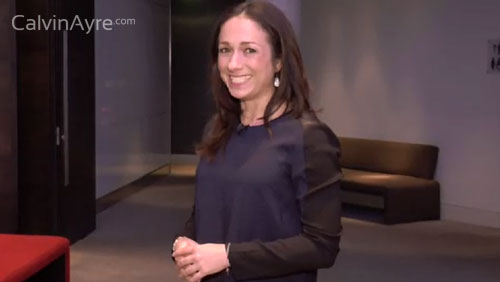The fourth annual Mobile & Tablet Gambling Summit Europe has just finished at London’s Hilton Tower Bridge. This two-day event covered the usual topics such as Native vs. HTML5 strategy, developing a seamless multi-channel experience, social media strategies, mobile-first strategies and also touched on future opportunities such as wearable technology.
The second day of the conference had a similar structure to the first day, blocks of sessions broken up by networking breaks and a generous lunch break. Organizer George Kiley, Head of Business Development for Bullet Business, explained longer breaks are built into the event for ample networking opportunities and speakers are carefully chosen so there are no sales pitches, only senior execs providing value.
One of today’s best sessions was delivered by James Hilton, Global CEO of M&C Saatchi Mobile, during which he provided expert insight on player re-engagement and re-targeting. Hilton described re-targeting as “what its really all about” because it’s more expensive to acquire players these days and operators must achieve a higher lifetime value to justify the cost.
Hilton said if a user doesn’t return to an app after seven days of downloading it, there is a 60% chance they will never come back. “The trick is to get in early”, he said- focus on the first seven days and start triggering messages four hours after download.
Before triggering messages, Hilton advised operators to segment their audience: find out who they are, then retarget and hit them with a relevant message. Within that message, deep-link them back to where they were, for example back to the bingo game or the casino game they were playing rather than to the homepage. “Contextual deep linking”, he called it.
Hilton also emphasized the importance of collecting meta data at a granular level and emphasized “you have to tag everything”. “Its turning into a data game- who has the best data and more importantly, who can use this data”, he said.
Operators should custom tailor their messaging to players because according to Hilton, “banging out the same message to everyone is not cost efficient and its naive” and with the correct data, operators can “buy audiences at any time, any location”.
Some examples of effective messaging would be to send a player who has just deposited for the first time something like, “have you tried playing game x” and do this straight away- if you can get them back, the habits will start forming. For those who abandon registration, give them a free bet to register with a sense of urgency. If a player has disappeared, put free money in their account and send them a message telling them to “claim now”.
This afternoon’s “pan-European legal landscape” panel featured James Harrison, Licensing Director of Gaming Realms, Andrew Danson of K&L Gates LLP, Stuart Baker, Senior Legal Council of Betfair and an unexpected surprise, Independent Gaming Consultant Steve Donoughue. Now what would otherwise have been a rather dull area for discussion became the conference’s most entertaining (and controversial?) session as Donoughue is as opinionated, outspoken, humorous and sarcastic as they come. Moderator Arthur Barker of OneUp Sports managed the “colorful” discussion with grace, a talent that was noticed and appreciated.
The first topic discussed was the UK’s upcoming POCT and as a UK focused operator, Harrison said he’s still unsure of the long-term effect of POC, except for the lawyers who are making tons of money (joke). He went on to explain that the POCT FAQ page on the Gambling Commission’s site is about 50 questions long and this just goes to show how complex the situation really is.
Donoughue, the “colorful” speaker that he is, added his two cents and said, “I think the POC is just the beginning”- there are going to be more controls and there are going to be more regulations. He said the more appealing your games are, the more there will be some “numbskull politician” who tries to put restrictions on it. “Paddy Power are the people who are making it worse”, he said- politicians don’t like what Paddy Power are doing and will do things like cut advertising as a result.
Donoughue explained politicians don’t understand the difference between retail and online and therefore must be educated. He also suggested operators should do something good- sponsor a charitable event, for example- and start shouting about it. “Politicians will learn to love you”, he said.
The last session of the day was led by Dr. Windsor Holden, Head of Consultancy & Forecasting for Juniper Research. Dr. Holden covered the concept of wearable technology and the opportunities it presents for iGaming, or rather the opportunities that it doesn’t present…at least not yet. “There is so much that needs to be done before we can do anything in this sector”, he said.
At the moment, the market is dominated by fitness wearables but in the future Dr. Holden expects them to be overhauled by wearable watches. Naturally the Apple Watch debut in 2015 has caused some excitement, but according to Dr. Holden, “If you want to drive the wearable market, you need the wristbands that are independent of the handset” (Apple watches will be dependent on the iPhone).
Dr. Holden went through a host of challenges that wearable technology will face such as: privacy issues, consumer safety, battery life, size limitations, regulations, connectivity and technological challenges.
Despite the challenges, if we look five to ten years down the line, some possible use cases in the long term for smart glasses could be: delivering odds and race info in real time and on course, facial recognition in casinos to identify known cheats, and creation of virtual casinos. For watches/wristbands, the use cases are primarily payment oriented. “Many wearable segments will not take off in this decade”, he said.





